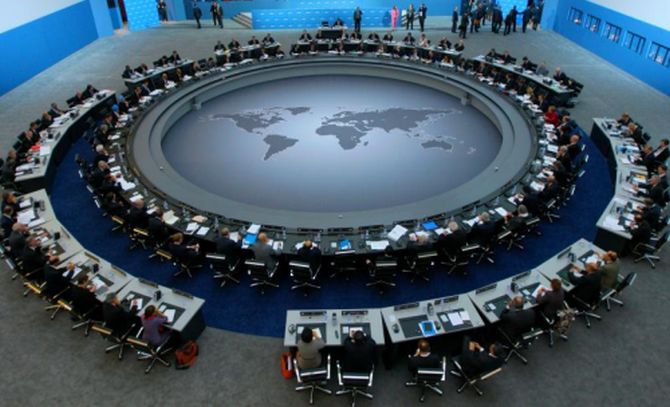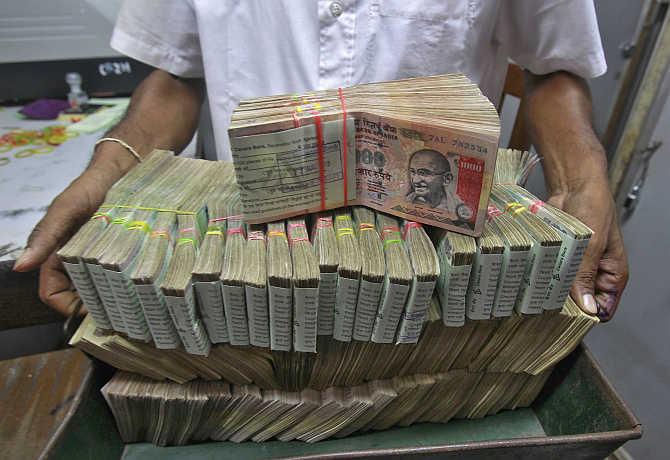 | « Back to article | Print this article |
FM to come out with reform measures in the Budget
India on Sunday told other G-20 countries that Finance Minister Arun Jaitley was going to unveil reform measures in his Budget for 2014-15 next month.
New Delhi also cautioned the grouping about the impact of the Iraq crisis on its fiscal position.
It wanted the US to withdraw its monetary stimulus in close coordination with member countries of the group.
Click NEXT to read more...
FM to come out with reform measures in the Budget
Finance Secretary Arvind Mayaram said at the meeting of G-20 deputies in Melbourne, Australia said, “Reform measures will be presented by the finance minister in the forthcoming Budget and hence I will not be able to provide specifics at this stage.”
Jaitley is widely expected to come out with reforms on the subsidy front and also to spur investment to put India’s economy out of sub-five per cent growth it was stuck for the past two years.
Mayaram said, “As you are aware, India has elected a new government. We will be strengthening our growth strategies as per priorities of the new government.”
Click NEXT to read more...
FM to come out with reform measures in the Budget
He exuded confidence that the strategies will be growth-oriented and would deepen the reform process to put the economy on a high growth path in line with the G-20 objective of strong, sustainable and balanced growth.
As Brent crude hovers around $115 a barrel due to Iraq crisis, Mayaram said recent developments in the west Asian country have created huge uncertainties with an overhang on the global economy.
“The volatility in petroleum prices have put pressure on the fisc in countries like India,” he said.
Click NEXT to read more...
FM to come out with reform measures in the Budget
The Union government’s fiscal deficit came down in 2013-14 to 4.5 per cent of GDP (gross domestic product) from 4.9 per cent in 2012-13, but it remained quite higher compared to the original plan of bringing the excess expenditure down to three per cent of GDP by 2008-09.
Mayaram also cautioned members about unwinding of monetary stimulus by the US.
“Recent normalisation of unconventional monetary policy in the US has been largely smooth, albeit low volatility in the markets should not lead to complacency.
Backstop measure should continue to be reinforced and unwinding should be pursued with close coordination among the member central banks minimising negative spillovers,” he said.
Click NEXT to read more...
FM to come out with reform measures in the Budget
The Federal Open Market Committee earlier this month cut its stimulus programme back by another $10 billion, to $35 billion a month, compared with $85 billion in December before the taper began.
The finance secretary said as per assessment of G-20, policy actions by the grouping are expected to provide only an additional 0.8% growth, excluding infrastructure and trade, against the targeted two%.
Click NEXT to read more...
FM to come out with reform measures in the Budget
The finance secretary said, "It is in investment including in infrastructure that we need to put our heads together to come up with new and additional policy actions to unlock our growth potential.
However, clearly the support that must be provided by the multi-lateral development banks developed countries in intermediation of global capital flows into emerging markets has also been very weak."





